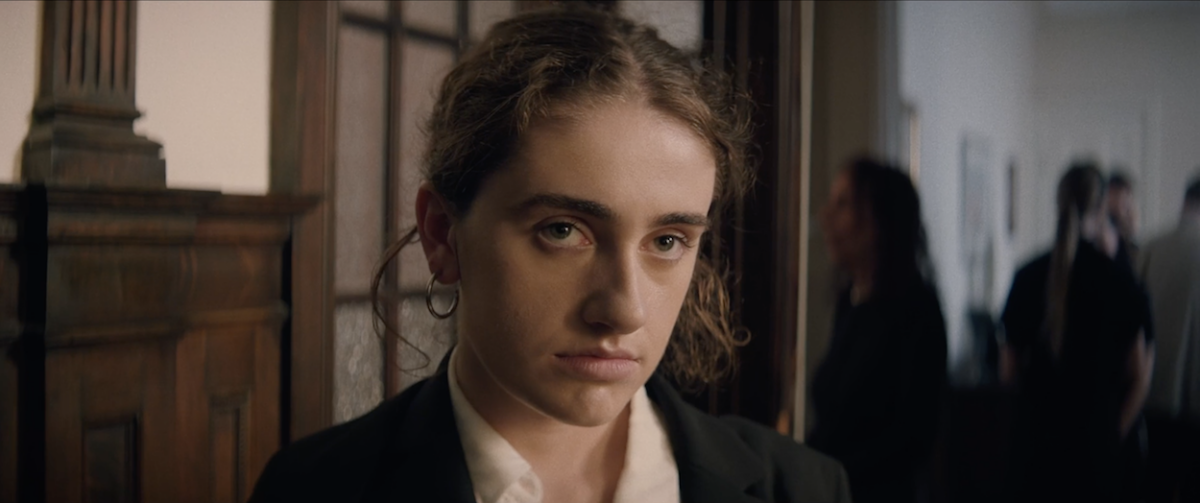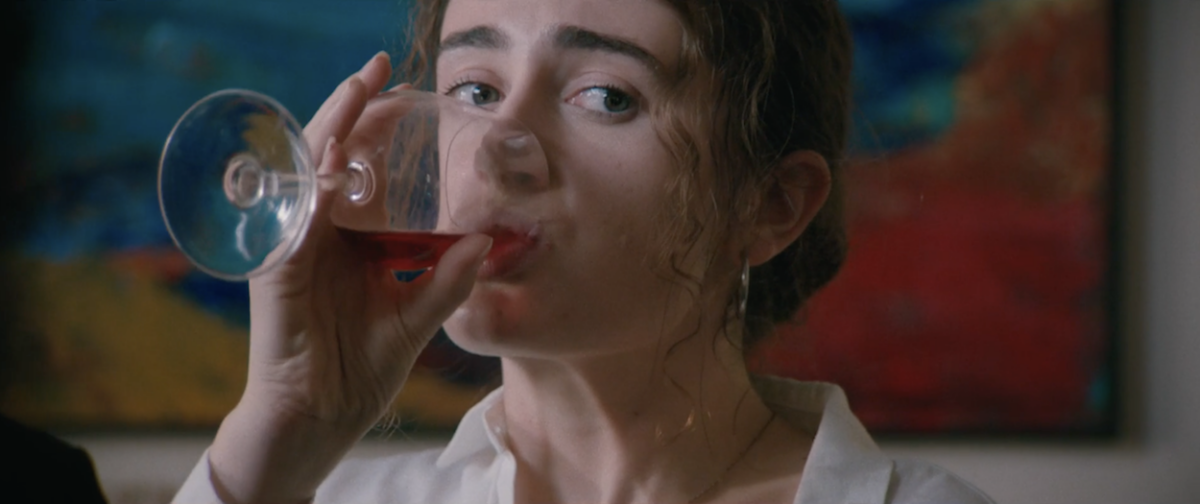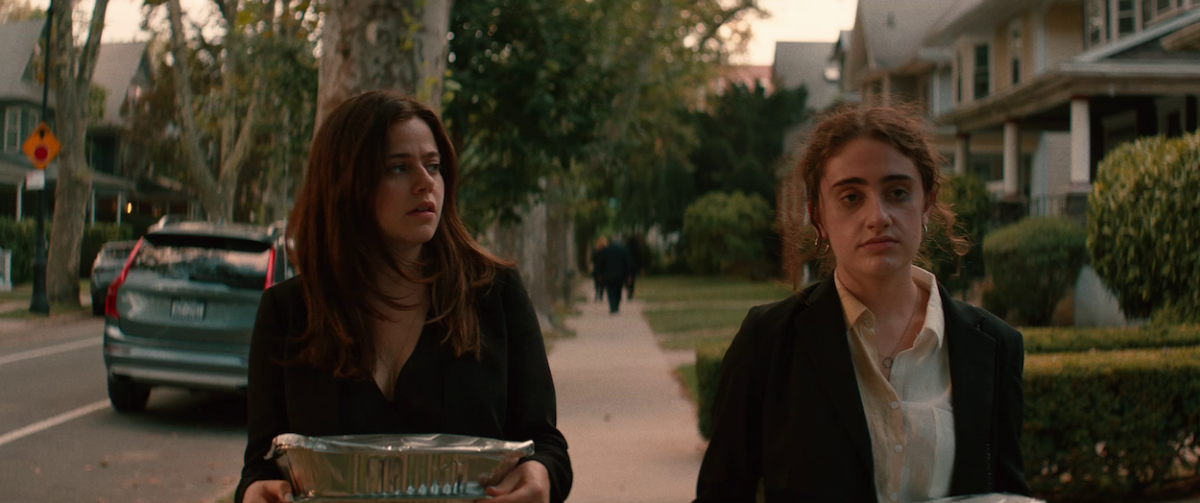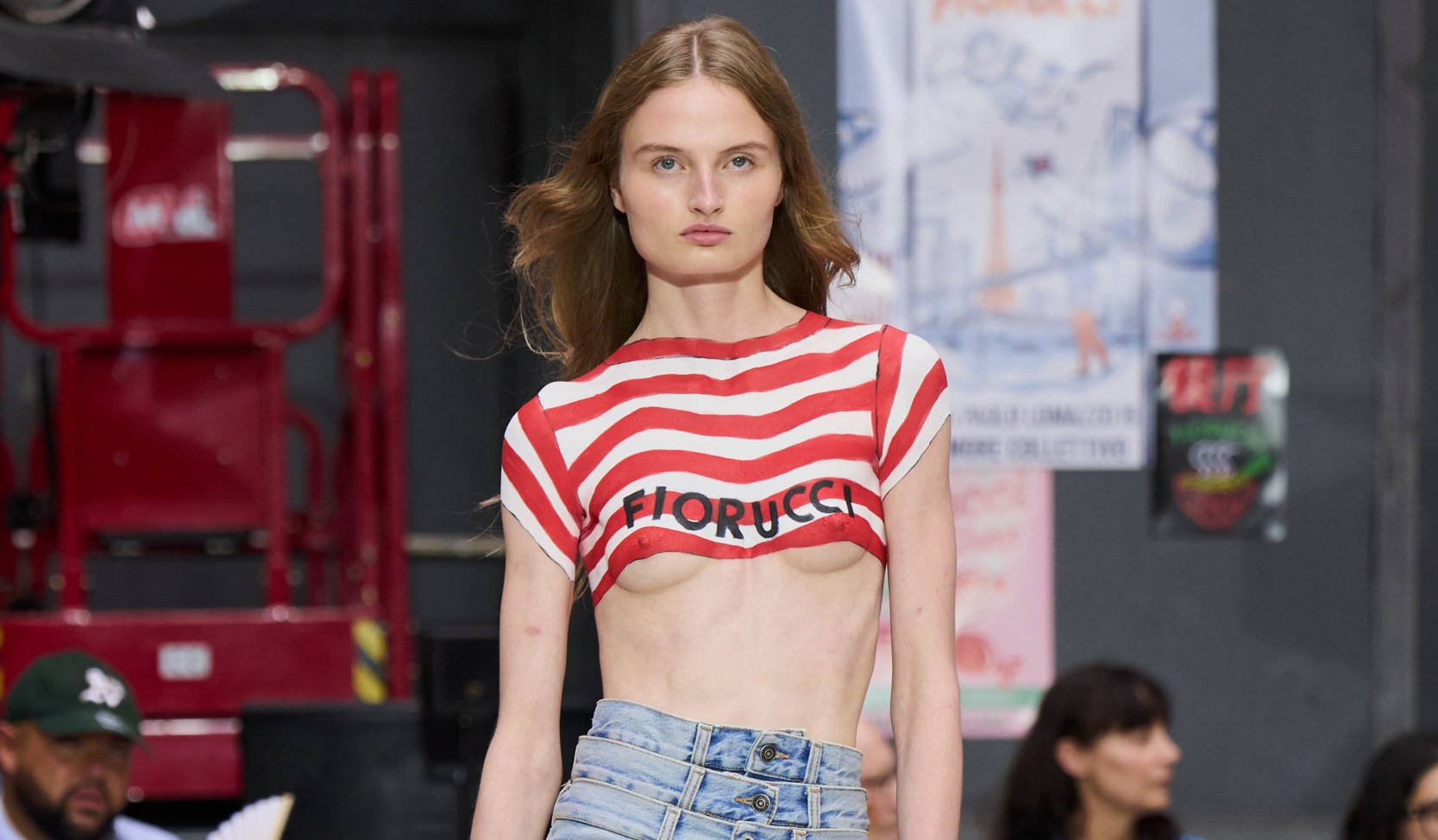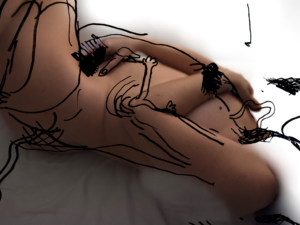When developing the plot what came first, the shiva setting or the different characters, like sugar daddy and ex-girlfriend?
I think shiva came first, but the idea came sort of all in one. For a long time, I’d wanted to set something at a Jewish family function, particularly a shiva. But when it came to making my final project for school, which this is based on, I thought about what I could relate to and write well, so I knew it was gonna be a young woman, who is going through something that I was feeling in some way.
Why a shiva particularly?
Even though shivas are a mourning ritual they feel just as lively as other family events in the community where I’m from. I think that’s partly on purpose, because it’s a way of getting through the grieve, telling nice stories and keeping the vibe upbeat. But it’s just the same noisiness and bragging and definitely the same amount of eating, if not more, and that was always very funny to me.
What was your process of making the film, after you had the idea for the plot?
After I made the short film, I directly started writing the feature, and that took many drafts because I wanted it to stay in one location for budget reasons. But it’s definitely hard to create a story that is interesting enough to stay in one house. I had to try so many things to make it feel interesting. I was working with the producer, a friend of mine from school, and we tried to raise money, the toughest part of the process. It was all happening at once; we were also looking for the house and casting. So, the process was very chaotic, just like the film.
How important were a Jewish and/or queer background for your casting?
We definitely tried as much as possible to find Jewish actors, to make it as authentic as possible. I also wanted people slightly recognizable, helping us to promote the film at film festivals. We also needed them to be within New York, because we couldn’t afford to fly people out, put them in a hotel, pamper them and take them to work. We had difficulties finding a Jewish actor to play the mom, and eventually Polly Draper, who was playing another character, put herself up. She is married to a Jewish person, but it didn’t always work in terms of representation. But for me it worked at the end of the day. When it comes to queer representation, I think it’s tricky because you don’t always know someone’s sexuality, maybe the didn’t out themselves or don’t label themselves.
What makes developing a feature film different to making a shortmovie?
I think the main thing I took into consideration was how to make Danielle’s day as crazy as possible while still feeling realistic and grounded. For a short film you can make it however you want, but for a feature, if it’s longer than one day, the main character’s life has to change. Otherwise, why are we watching it? I thought, how is this woman change from this day, so she had to have a nervous brake-down.
